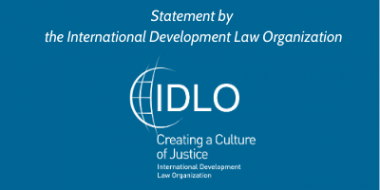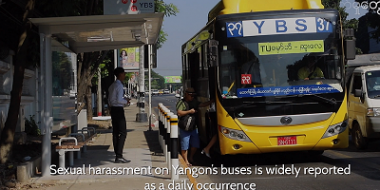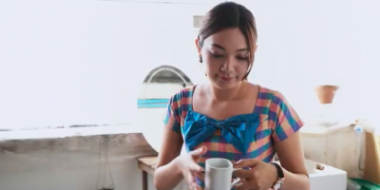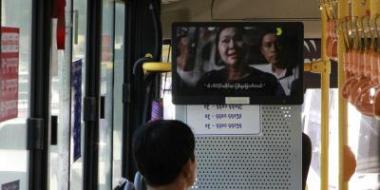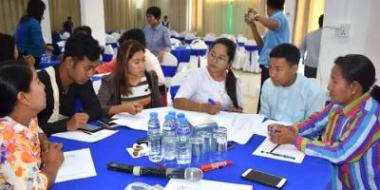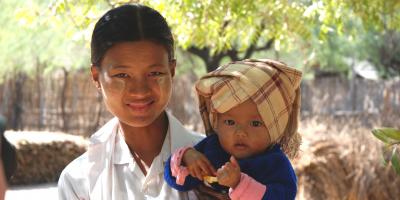
Women and girls in Myanmar face many barriers when trying to access justice for sexual and gender-based violence (SGBV). Chief among these are the pervasive negative attitudes which seek to justify and allow SGBV within families and communities. In addition, SGBV survivors are often stigmatized and blamed for the violence preventing them from effectively pursuing legal remedies. This is compounded by a lack of awareness among women and girls about their rights, as well as a lack of knowledge within communities and on the part of service providers about how to respond to such cases.
To mitigate these issues, IDLO works with community-based organizations to strengthen local capacities to deliver better justice services for women in Myanmar. Crucially, the project, in partnership with MyJustice, funded by the European Union and implemented by the British Council in Myanmar, supports the provision of essential services for survivors of violence beyond legal assistance. It also aims to improve understanding of sexual and gender-based violence by strengthening rights awareness among women, girls and communities.
To commemorate International Women’s Day 2019, IDLO is launching a new curriculum to build the capacity of local service providers to deliver services in a survivor-centered approach.
Speaking at the launch event, Project Coordinator Lauren Donnison stated, “International Women’s Day is not only about this day; it is about encouraging and inspiring women to reach for and demand equality all year long in all areas of their lives. It is about enabling women and men to understand their rights, gender equality and discrimination, SGBV and pathways to justice for survivors.”
Participants have benefited from IDLO’s trainings and support throughout the project. Building on gains made, the IDLO curriculum will be used by organizations to conduct their own training as part of their organization’s activities, demonstrating a grassroots-led effort to strengthen women’s and girls’ access to justice. “We hope that this curriculum will be an essential tool that you and your organization can use to spread knowledge and understanding about these important issues in your communities,” continued Ms. Donnison, speaking to participants.
Results of the training show that there has been not only an increase in knowledge about what constitutes SGBV, but also a paradigm shift in values. The curriculum seeks to further strengthen this understanding among participants, laying the groundwork for cultural change in Myanmar. These are their reflections:
|
"One evening, I saw that a husband was very angry at his wife and tried to beat her with a big stick. I usually thought that the couple’s fighting was normal, and I never involve in it. But, I learned what is the violence during the training, so I felt uncomfortable when I saw this violence. So, I called the ward administrator to stop him. Then they arrived and took the couple to the office. After the training, I became to feel that we should try to stop violence in our community." A representative from Noble Justice Association |
 |
 |
“Now we provide both mental and physical support to survivors, such as helping them to access medical services, providing food, paying transportation costs, accompanying her to the court, legal awareness. Before we just give encouragement but now, we understand the survivor-centered approach we support survivors in many ways.” A representative from Second Tap Root |
|
“My family is big and extended. We live together in a compound. My uncle’s wife is bullied by other relatives every day. They blamed her for everything she does. They hurt her mentally every day. Before the training, I never realized it was also a domestic violence. I just thought that they hate each other, so they did it. I was aware of this violence and how to approach it during the training. I used my mediation skill and communication skill to persuade indirectly to my relatives. We usually organize regular gathering among our relatives. I persuaded my relatives in the gathering meeting that we should not act unfair behaviors to others and it was a violence. I understand that it will take time to change them, but I see this violation became to reduce gradually among our relatives.” A representative from Second Tap Root |
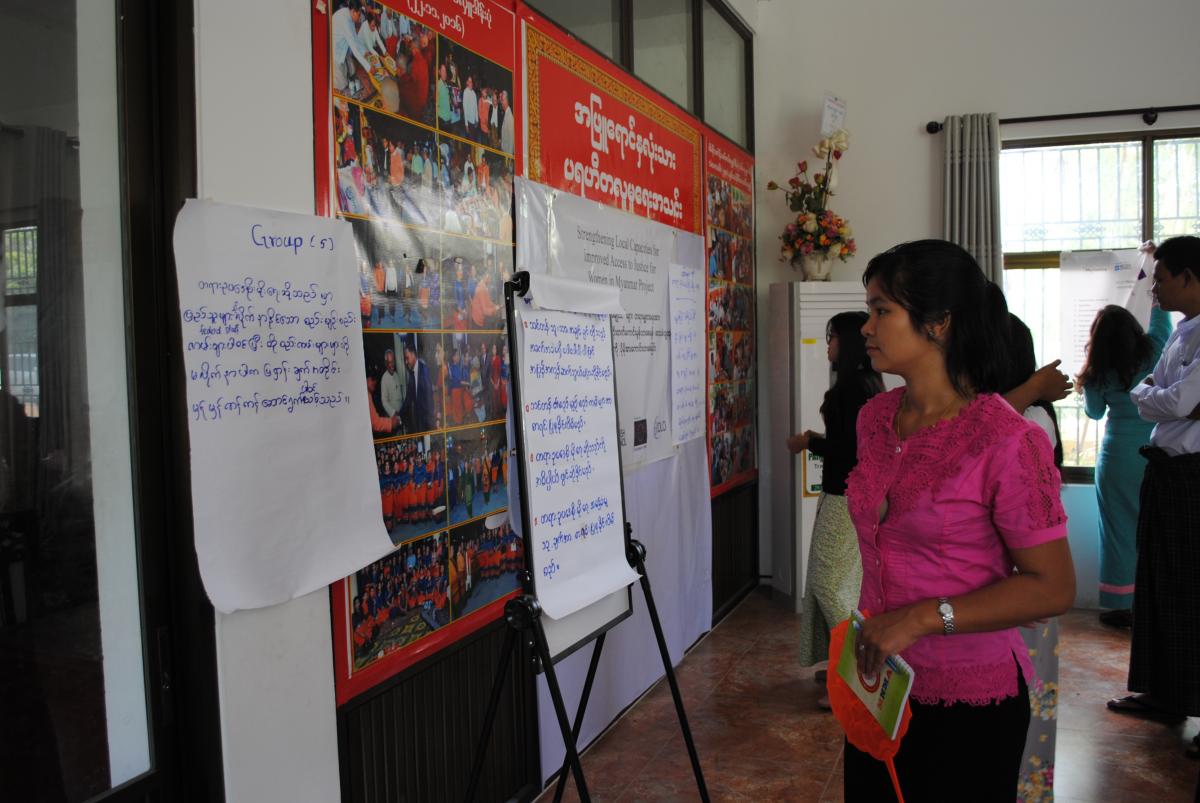 |
 |
“This training has impacted the way I act in my personal life. Before I was not familiar with any of the SGBV topics, as this is not my field. But now I understand that things, like a couple fighting, is not normal and we have to address this type of behavior. I am trying to change myself so that I have no stereotypes and after that I will try to change the attitudes of my family and friends and then focus on my community." A representative from United Women |



